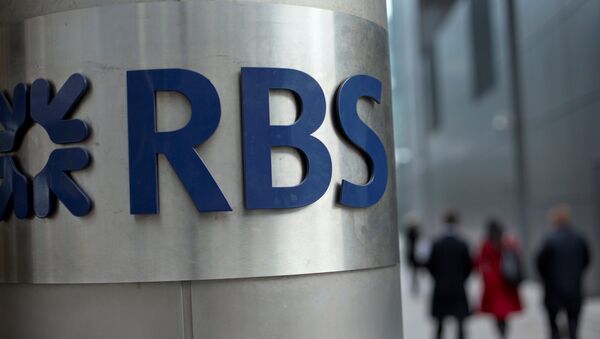Sir Howard Davies said that some international banking firms were already considering their future in the UK as a result of Brexit, noting that many are currently drawing up contingency plans for Britain's exit from the EU.
He called for the government to work towards negotiating a transitional deal with the EU, which would allow the banking industry to continue operating in the European single market.
There you are Howard Davies just clearly stated on tv banks will leave, so what's your silly little plan?
— Face of Boe (@KingInTheNCP) November 13, 2016
"I think it is damaging if we don't get a transitional deal because I think you will then see banks and financial institutions making decisions on the basis of uncertainty," he told ITV.
"They will not sit back, they are currently making contingency plans and once you've got a contingency plan — hey, there is a risk you might implement it one day. And therefore I think that it is quite urgent."
Renewed Calls for Interim Deal
The comments come as renewed calls for the UK government to push for a transitional Brexit deal are issued, amid fears the sheer complexity of extracting Britain from the EU could mean that a trade deal between the two may not be in place within two years of triggering Article 50.
If no deal is signed within two years of the British government invoking the Brexit divorce process, then the UK and EU would automatically revert to WTO trade rules, which analysts say would be disastrous for both parties, and has been likened to falling off a "cliff edge."
@alanbeattie Yes, maybe. There is a logic to soft interim deal so UK can decide later on hard Brexit with real economic choice clearer.
— John Gapper (@johngapper) November 2, 2016
The fears of such WTO rules has led numerous government MPs, including Brexiteer Theresa Villiers, to call of Brexit minister David Davis to push for some sort of transitional deal, amid fears the UK's financial sector may look to shift operations to either Ireland or mainland Europe.
As a result of these concerns, Mr. Davies has called for the government to provide more security to the UK's banking industry.
Everyone seems pretty aligned on an interim deal #brexit
— nicole valentinuzzi (@nicolevIFG) November 2, 2016
"What is really important is the transitional arrangements.
"So what we are particularly focused on in the City at the moment is to try to get an understanding that actually allowing a cliff edge departure from Brexit would be damaging for everybody, because about three quarters of all European capital transactions take place in London — often by French banks or German banks etcetera — but they take place in London."
An interim deal on #Brexit – what would it look like and what are the challenges to securing one? https://t.co/HTIleE9tYw pic.twitter.com/DwtezJljZO
"If you suddenly broke that off it would be destabilizing for the whole of the European financial markets.
"So what we need is a transitional arrangement, as the Article 50 process starts, so we can say 'look, here is the way in which things are going to work in the medium term.' In the long term, of course, I think there will be some movement of activity."
Backlash Against Bankers' Brexit
Despite the protests of the banking industry in relation to Brexit and the concerns over the impacts it may have on the UK's economy, the government has also been accused of pandering to the country's financial sector, with the opposition Labour party accusing Theresa May's government of pursuing a "Bankers' Brexit."
All of a sudden bankers, hedge fund managers, lawyers, unelected Eurocrats and wealthy luvvies are the heroes of the #Left! #Brexit
— Steve Caunt (@stephencaunt) November 5, 2016
Following reports that the government was looking at ways to try and keep the City of London's financial sector in the European single market, shadow Chancellor John McDonnell accused the Conservatives of trying to turn the UK into "a Singapore of the North Atlantic" by using Brexit to transform the Britain into a low-tax, low-regulation country.
While acknowledging the importance of the UK's financial industry, McDonnell's criticism has heightened concerns that the British government is increasingly working towards a post-EU deal that will favor big businesses over smaller industries and workers' rights.



